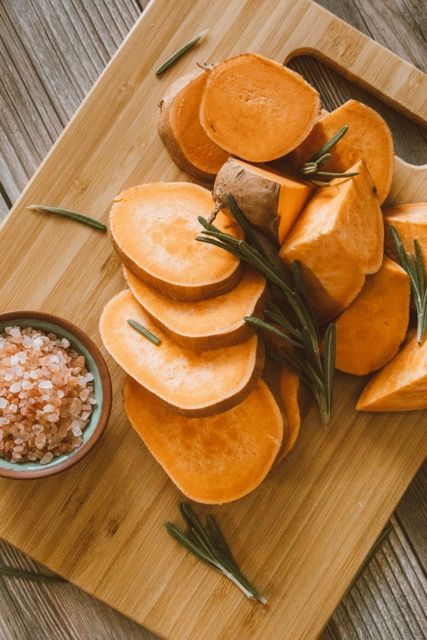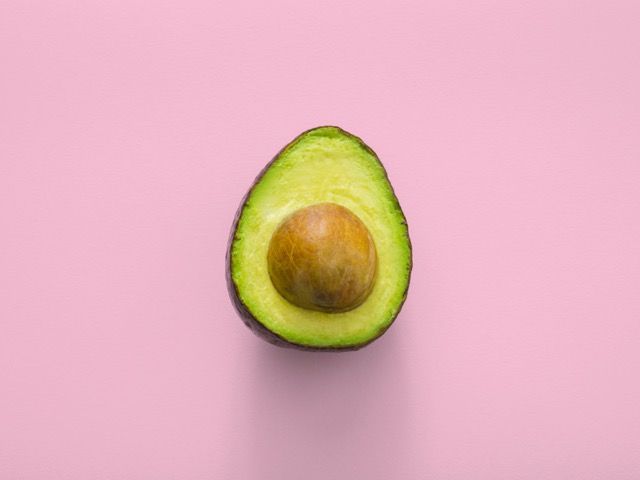The Ultimate Hybrid Athlete Nutrition Plan for Optimal Performance
Hybrid athletes require a unique nutrition plan to fuel both endurance and strength training. Learn how to optimize your performance with our guide.

Welcome to Hybrid Athlete Nutrition
What is a Hybrid Athlete?
A hybrid athlete is an individual who participates in multiple sports or physical disciplines, often combining elements of strength, endurance, and skill. These athletes strive to excel in various areas, such as weightlifting, running, swimming, cycling, and functional fitness. The diversity of their training demands a comprehensive and adaptable nutrition plan to support optimal performance and recovery.
Explore some of the sponsors of this blog and discover cool apps, products, or websites that I'm currently using and loving by visiting the links below 👇
Do Hard Things*: Achieve fitness goals with Fit for Life, a minimalist log book for men and women. Track progress and set monthly goals with expert design.
LMNT: Stay Salty! A tasty electrolyte drink mix that is formulated to help anyone with their electrolyte needs and is perfectly suited to folks fasting or following low-carb, whole-food diets
Hypefury: Schedule & Automate Social Media Marketing Your personal assistant to grow & monetize your Twitter audience
yourcompany.com: Interested in sponsoring this blog? 📩 → blogSponsor@hybridathletepro.com
Importance of Nutrition for Hybrid Athletes
Proper nutrition is critical for all athletes, but it's especially crucial for hybrid athletes who engage in diverse training modalities. A well-rounded nutrition plan fuels the body, supports muscle growth and repair, and keeps energy levels high during grueling workouts and competitions.
Macronutrient Breakdown
Protein: Building Blocks of Muscle
Protein is essential for muscle growth and repair, as well as hormone and enzyme production. Aim for 1.2 to 1.7 grams of protein per kilogram of body weight daily, this equates to 0.5 to 0.8 grams per pound¹. Choose high-quality sources like lean meats, fish, poultry, dairy, beans, legumes, and plant-based protein powders.
Protein is an essential macronutrient that plays a crucial role in a hybrid athlete's nutrition plan. As the building blocks of muscle, proteins are composed of amino acids that are necessary for muscle growth, repair, and maintenance. Adequate protein intake is vital for recovery, especially for hybrid athletes who engage in various sports or physical activities that put stress on their muscles.
Complete vs. Incomplete Proteins
Not all protein sources are created equal. Complete proteins contain all nine essential amino acids that the body cannot produce on its own, while incomplete proteins lack one or more of these essential amino acids. Animal-based proteins, such as meat, poultry, fish, dairy, and eggs, are generally complete proteins. Most plant-based protein sources are considered incomplete, with the exception of quinoa, soy, and chia seeds.
For hybrid athletes following a plant-based diet, it's essential to consume a variety of plant-based protein sources to ensure that you're getting all the essential amino acids your body requires.
Protein Quality and Bioavailability
The proportion of a drug or other substance which enters the circulation when introduced into the body and so is able to have an active effect.
The quality and bioavailability of protein sources also play a significant role in meeting the protein needs of hybrid athletes. Bioavailability refers to the proportion of protein that can be absorbed and utilized by the body. Animal-based protein sources typically have a higher bioavailability than plant-based sources, which means they are more easily absorbed and used by the body.
To optimize protein intake and ensure adequate bioavailability, consider including a variety of high-quality protein sources in your diet. For animal-based proteins, opt for lean meats, poultry, fish, and low-fat dairy products. For plant-based proteins, focus on beans, legumes, tofu, tempeh, edamame, and protein powders derived from pea, rice, or hemp.
Protein Timing and Distribution
To maximize muscle protein synthesis, it's essential to distribute your protein intake evenly throughout the day. Aim for 20-30 grams of protein per meal and include a source of protein in each snack. Consuming protein before and after exercise can also help support muscle repair and growth, as well as aid in recovery.
Protein is a crucial component of a hybrid athlete's nutrition plan. By consuming a variety of high-quality protein sources, paying attention to bioavailability, and distributing protein intake throughout the day, you can support your athletic performance, muscle growth, and recovery.

Carbohydrates: Fuel for Performance
Carbohydrates are the body's primary energy source and are especially important for endurance athletes. Consume 3 to 6 grams of carbs per kilogram of body weight, adjusting based on activity level and intensity. Focus on complex carbs such as whole grains, vegetables, and fruits for sustained energy.
Carbohydrates play a vital role in a hybrid athlete's nutrition plan, serving as the body's primary energy source. Adequate carbohydrate intake supports high-intensity training, endurance activities, and overall athletic performance.
Types of Carbohydrates
Carbohydrates can be classified into two main categories: simple and complex.
- Simple Carbohydrates: Simple carbs, also known as sugars, are quickly absorbed and provide a rapid source of energy. Examples include fruits, honey, and sports drinks. While simple carbs can be beneficial for quick energy during exercise, consuming too many refined simple carbs, such as white bread, candy, and sugary beverages, can lead to energy crashes and contribute to weight gain.
- Complex Carbohydrates: Complex carbs are made up of longer chains of sugar molecules and take longer to break down, providing a more sustained release of energy. Sources of complex carbs include whole grains, vegetables, and legumes. Incorporating complex carbs into your daily meals will help maintain steady energy levels and support long-lasting athletic performance.
Glycemic Index and Glycemic Load
The glycemic index (GI) is a measure of how quickly a carbohydrate-containing food raises blood sugar levels. Foods with a high GI cause a rapid spike in blood sugar, while those with a low GI result in a slower, more gradual increase. Consuming low-GI carbs can help maintain steady energy levels and prevent blood sugar crashes.
Glycemic load (GL) is a more comprehensive measurement that takes into account both the quality and quantity of carbohydrates in a food. It considers the GI and the number of carbs in a typical serving. Choosing foods with a low GL can contribute to stable blood sugar levels and sustained energy during training and competition.
Carbohydrate Timing and Intake
Carbohydrate intake should be adjusted based on your training schedule and intensity. Consume a higher proportion of carbohydrates on days with intense workouts or endurance activities and reduce carb intake on rest or low-intensity days.
Incorporate carbs into your pre- and post-workout nutrition to ensure adequate energy and support recovery. Read more about this in the next section below 👇. Consuming a carbohydrate-rich meal or snack 1 to 3 hours before exercise can help fuel your workout, while consuming carbs within 30 minutes to 2 hours after exercise can aid in replenishing glycogen stores and supporting muscle repair.
Carbohydrates are crucial for supporting a hybrid athlete's performance across various sports and activities. By focusing on complex carbs, considering the glycemic index and glycemic load, and timing carbohydrate intake to align with training demands, you can optimize your energy levels and fuel your athletic pursuits.

Fats: Essential for Overall Health
Fats play a vital role in hormone production, nutrient absorption, and maintaining cell integrity. Aim for 0.5 to 1 gram of fat per kilogram of body weight, prioritizing healthy fats like avocados, nuts, seeds, and olive oil.
Fats are a critical component of a hybrid athlete's nutrition plan, as they provide energy, support hormone production, aid in nutrient absorption, and maintain cell integrity. While fats were once considered the enemy, it is now understood that healthy fats are essential for overall health and athletic performance.
Types of Fats
Fats can be categorized into four main types:
- Saturated Fats: Found primarily in animal-based products such as meat, dairy, and butter, as well as some plant-based sources like coconut oil and palm oil. While saturated fats have been linked to increased cholesterol levels and heart disease, consuming them in moderation as part of a balanced diet should not pose a significant risk for most individuals.
- Trans Fats: These are artificially created fats found in processed and fried foods. Trans fats have been linked to increased risk of heart disease and should be avoided whenever possible.
- Monounsaturated Fats: Found in sources such as avocados, nuts, and olive oil, monounsaturated fats can help lower bad cholesterol levels and support heart health. Incorporate these healthy fats into your diet for overall wellness.
- Polyunsaturated Fats: These fats are found in fatty fish, walnuts, and seeds like flax and chia. Polyunsaturated fats, including omega-3 and omega-6 fatty acids, play a crucial role in brain function, inflammation reduction, and heart health.
The Role of Fats in Athletic Performance
While carbohydrates serve as the primary energy source for high-intensity activities, fats provide a more sustained energy source for low- to moderate-intensity exercise. This makes fats an essential component of a hybrid athlete's diet, as they participate in various types of training and competitions.
Fats also play a key role in the absorption of fat-soluble vitamins (A, D, E, and K), which are crucial for bone health, immune function, and antioxidant protection. Adequate fat intake is particularly important for athletes who engage in high-impact sports, as it helps protect against injuries and supports optimal recovery.
Balancing Fat Intake
Aim to consume 0.5 to 1 gram of fat per kilogram of body weight daily, focusing on healthy fats from whole food sources. Prioritize monounsaturated and polyunsaturated fats, while limiting saturated and avoiding trans fats. Some examples of healthy fat sources include:
- Avocados
- Nuts (almonds, walnuts, cashews)
- Seeds (chia, flax, sunflower)
- Fatty fish (salmon, mackerel, sardines)
- Olive oil
- Nut butters
Fats are also essential for overall health and athletic performance in hybrid athletes. Incorporating a variety of healthy fats into your diet, you can support energy production, hormone balance, and nutrient absorption, ultimately contributing to optimal performance.
Timing Your Meals
Pre-Workout Nutrition
Pre-workout nutrition is a critical aspect of a hybrid athlete's diet, as it ensures that your body has the necessary fuel and nutrients to power through intense training sessions or competitions. The primary goal of pre-workout nutrition is to provide a balance of macronutrients that can deliver sustained energy, enhance performance, and minimize muscle damage.
Carbohydrates should be a central component of your pre-workout meal or snack, as they provide the glucose needed to fuel your muscles and brain during exercise. Choose easily digestible, low-GI carbs that provide a steady release of energy, such as whole grains, fruits, or starchy vegetables. Consuming carbs 1 to 3 hours before your workout can help optimize glycogen stores and maintain blood sugar levels during exercise, preventing premature fatigue and improving performance.
Incorporating protein into your pre-workout nutrition can help minimize muscle breakdown and promote muscle protein synthesis during exercise. This is particularly important for hybrid athletes who engage in various types of training that put stress on their muscles. Some high-quality protein sources to consider for your pre-workout meal include lean meats, poultry, fish, dairy, or plant-based options like tofu, tempeh, or protein powders.
While fats are not the primary energy source for high-intensity activities, they can provide sustained energy for longer, lower-intensity workouts. Including a small amount of healthy fats in your pre-workout meal can help maintain energy levels and support overall performance. Opt for sources like nuts, seeds, avocado, or nut butter.
Proper hydration is also essential for optimal athletic performance. Dehydration can lead to decreased strength, endurance, and coordination, as well as an increased risk of injury. Aim to drink at least 500ml of water 2 to 3 hours before exercise ², and consider sipping on water or a sports drink during your workout to maintain hydration levels.
Intra-Workout Nutrition
Intra-workout nutrition refers to the consumption of nutrients during exercise to support energy levels, delay fatigue, and maintain optimal performance. While not always necessary for shorter workouts, intra-workout nutrition becomes increasingly important for hybrid athletes engaging in prolonged or high-intensity training sessions or competitions.
During extended workouts, your body's glycogen stores can become depleted, leading to a decline in performance. Consuming carbohydrates during exercise can help replenish glycogen stores and maintain blood sugar levels, delaying fatigue and sustaining performance. Simple carbs, such as sports drinks, gels, or easily digestible fruits like bananas, can provide a quick source of energy without causing digestive discomfort.
For workouts lasting longer than 60 minutes, aim to consume 30-60 grams of carbohydrates per hour to support energy levels and performance.
Electrolytes, including sodium, potassium, and magnesium, play a crucial role in maintaining fluid balance and supporting muscle function. During exercise, electrolytes are lost through sweat, and inadequate replenishment can lead to dehydration, muscle cramps, and decreased performance.
Incorporate an electrolyte-rich sports drink or electrolyte supplement during prolonged or high-intensity workouts to help maintain hydration and support muscle function. Be sure to also continue sipping on water throughout your workout to further support hydration.
Branched-chain amino acids (BCAAs) and essential amino acids (EAAs) can be consumed during exercise to help minimize muscle breakdown and support muscle protein synthesis. BCAAs, in particular, have been shown to reduce muscle soreness and enhance recovery when consumed during workouts. Consider adding BCAA or EAA supplements to your intra-workout nutrition plan, especially during intense or prolonged training sessions.
It's essential to remember that intra-workout nutrition requirements can vary greatly between individuals and depend on factors such as workout duration, intensity, and personal preferences. Experiment with different intra-workout strategies and pay attention to how your body responds to determine the most effective approach for your unique needs.

Post-Workout Nutrition
Post-workout nutrition is a key element of a hybrid athlete's diet, as it supports recovery, muscle growth, and adaptation to training. Consuming the right nutrients after exercise helps replenish glycogen stores, repair muscle tissue, and minimize muscle soreness. By optimizing post-workout nutrition, you can maximize the benefits of your training sessions and prepare your body for the next workout.
After exercise, your body's glycogen stores are depleted, making it essential to consume carbohydrates to restore these energy reserves. Consuming carbs within 30 minutes to 2 hours after your workout can enhance glycogen synthesis and promote faster recovery. Opt for easily digestible, high-GI carbohydrates, such as fruits, rice, pasta, or bread, to quickly replenish glycogen stores.
A general guideline is to consume 1.0 to 1.2 grams of carbohydrates per kilogram of body weight within the first hour following exercise, followed by the same amount in the next hour if your next workout is within 8 hours.
Protein is crucial for repairing muscle damage, supporting muscle growth, and enhancing recovery after exercise. Consuming protein after a workout can help stimulate muscle protein synthesis and promote muscle adaptation to training. Aim to consume 20-30 grams of high-quality protein within 30 minutes to 2 hours after your workout. Some examples of post-workout protein sources include lean meats, poultry, fish, dairy, or plant-based options like tofu, tempeh, or protein powders.
While fats are not the primary focus of post-workout nutrition, including some healthy fats in your post-workout meal can support overall recovery and hormone balance. Opt for sources like avocado, nuts, seeds, or olive oil. However, be cautious not to consume excessive amounts of fats immediately after exercise, as they can slow the digestion and absorption of carbohydrates and protein.
Proper hydration is essential for optimal recovery and overall health. After exercise, it's crucial to replace any fluid losses experienced through sweat. A general guideline is to drink 450 to 675 ml of water for every pound of body weight lost during exercise ³. In addition to water, consuming electrolyte-rich beverages or foods can help restore electrolyte balance and further support hydration.
Supplements for Hybrid Athletes
Essential Supplements
While whole foods should form the foundation of any athlete's diet, certain supplements can provide added benefits for hybrid athletes:
- Multivitamins: A high-quality multivitamin ensures you meet your daily micronutrient needs, supporting overall health and performance.
- Fish Oil: Rich in omega-3 fatty acids, fish oil helps reduce inflammation and supports joint health.
- Branched-Chain Amino Acids (BCAAs): BCAAs can aid in muscle recovery and reduce muscle soreness after intense training.
- Creatine: This popular supplement can boost strength, power, and muscle size, particularly during high-intensity activities.
Sport-Specific Supplements
Depending on your training goals and specific sports, consider additional supplements to enhance performance:
- Beta-Alanine: This amino acid may improve endurance and reduce muscle fatigue in high-intensity activities.
- Caffeine: A proven performance enhancer, caffeine can increase alertness, focus, and endurance.
- Electrolyte Replacements: Electrolyte supplements help maintain hydration and mineral balance during endurance events or hot and humid conditions.

Hydration and Electrolyte Balance
The Importance of Staying Hydrated
Hydration is crucial for optimal performance, especially for hybrid athletes who engage in diverse activities. Proper hydration aids in temperature regulation, nutrient transport, and muscle function. Aim to drink at least 2 to 3 liters of water daily, adjusting for individual needs and activity levels.
Maintaining Electrolyte Balance
During prolonged or intense exercise, the body loses electrolytes through sweat. Replenish these essential minerals with electrolyte-rich sports drinks, coconut water, or electrolyte supplements to prevent cramps, fatigue, and impaired performance.
Bringing it Home
The ultimate hybrid athlete nutrition plan requires a well-balanced diet, proper meal timing, and strategic supplementation. By prioritizing high-quality macronutrients, staying hydrated, and addressing your unique training demands, you'll be well-equipped to conquer any challenge and excel in your athletic pursuits. This nutrition plan is also one that supports the diverse demands of various training modalities and competitions, while also promoting overall health and well-being. By understanding the importance of macronutrients, pre-workout, intra-workout, and post-workout nutrition, you can tailor your diet to meet your unique needs and optimize your performance.
A well-rounded nutrition plan should focus on:
- Consuming a balance of carbohydrates, protein, and healthy fats to fuel performance, support muscle growth, and maintain overall health.
- Prioritizing pre-workout nutrition by including carbohydrates for immediate energy, protein for muscle support, and healthy fats for sustained energy, along with proper hydration.
- Utilizing intra-workout nutrition for prolonged or high-intensity workouts, incorporating carbohydrates for sustained energy, electrolytes for hydration, and amino acids for muscle protection.
- Emphasizing post-workout nutrition with carbohydrates to restore glycogen stores, protein for muscle repair and growth, healthy fats for recovery, and proper hydration to replenish fluid losses.
Remember, every athlete is unique, and your nutritional needs may differ based on factors such as training intensity, duration, and personal preferences. Experiment with different strategies and pay attention to how your body responds to determine the most effective approach for your individual needs.
By implementing the principles discussed in this article and crafting a nutrition plan tailored to your specific requirements, you can unlock your full potential as a hybrid athlete and achieve optimal performance in all aspects of your athletic pursuits.
FAQs
How should I adjust my macronutrient intake based on my training goals?
If you're aiming to build muscle, focus on consuming more protein and slightly increasing your overall calorie intake. If your goal is to improve endurance, prioritize carbohydrates for sustained energy.
Can I follow a plant-based diet as a hybrid athlete?
Absolutely! With careful planning, a plant-based diet can provide all the necessary nutrients for optimal performance. Incorporate a variety of plant-based protein sources, such as beans, legumes, tofu, tempeh, and protein powders.
How do I know if I'm consuming enough calories to fuel my training?
Monitor your energy levels, performance, and body composition. If you're struggling with fatigue, poor performance, or unintentional weight loss, consider increasing your calorie intake.
Are there specific foods I should avoid as a hybrid athlete?
Aim to minimize processed foods, refined sugars, and unhealthy fats. Focus on whole, nutrient-dense foods to support performance and recovery.
Is it necessary to take supplements as a hybrid athlete?
Supplements can be beneficial, but they should not replace a well-rounded diet. Consult with a sports nutritionist or dietitian to determine which supplements may be appropriate for your individual needs and goals.
If you're a regular ol' hybrid athlete, you might fall in love with my Tubes channel 👇
https://www.youtube.com/@BarretNobelFitness
It is not only about fitness, it is about life in general. I try to inspire regular people. Check it and subscribe to get notified when new vids come out 🤙
Thanks for reading 🙏!
Don't forget to follow me on our social media for more tips, inspiration and community support! You can find me on Instagram, Facebook, Twitter and TikTok under the handle @BarretNobelFit.
See you in the next post!


Sources:
- https://www.acsm.org/docs/default-source/files-for-resource-library/protein-intake-for-optimal-muscle-maintenance.pdf
- https://www.nata.org/sites/default/files/FluidReplacementsForAthletes.pdf
- https://boxing.nv.gov/uploadedFiles/boxingnvgov/content/HotTopics/Nutrition_for_Athletes.pdf#:~:text=Recovery from dehydration during exercise is accomplished by,PR Cole%2C MS and Timothy Trainor%2C MD. Reference
